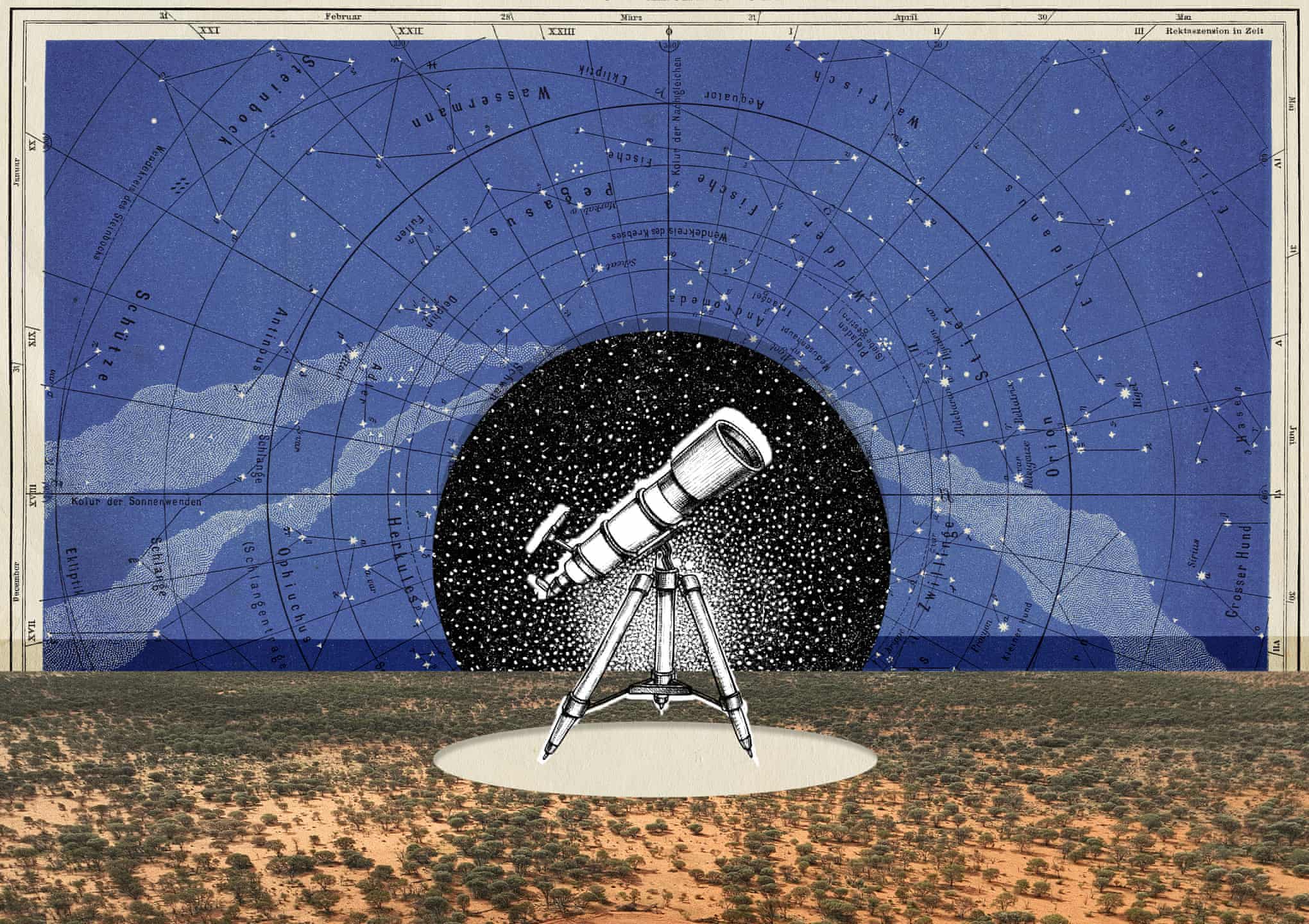Science
Telescope Project in Australia Faces Serious Misconduct Allegations

The ambitious Square Kilometre Array Observatory (SKAO), a €2 billion (A$3.6 billion) initiative aimed at exploring the hidden universe, is facing serious allegations of financial misconduct. The project, which features over 130,000 antennas in the remote outback of Western Australia and a sister facility in South Africa, aspires to map the early universe and seek evidence of extraterrestrial life. However, recent reports indicate that the organization managing the project has been shaken by claims of mismanagement and financial irregularities.
The Australian contribution to the SKAO has escalated by more than $150 million from 2020 to 2024 compared to its original budget, with part of the increase attributed to funding shortfalls. As of March 2025, the Australian telescope began capturing its first images of distant galaxies using only 1% of its capacity. Concurrently, a former senior employee filed a “protected disclosure” report urging an investigation into the financial practices of the SKAO.
Since the SKAO operates as an intergovernmental organization, it is not subject to national laws or regulatory oversight in Australia, where the whistleblower is based. The report was directed to the organization’s global chair, Filippo Maria Zerbi, an Italian astrophysicist. In response to the allegations, Zerbi confirmed via email that an external independent evaluation is underway to investigate the numerous claims against the organization.
The whistleblower also raised concerns with the UK’s financial reporting council, asserting that the SKAO’s structure has created a “regulatory blind spot” allowing for the “systematic deception of 16 sovereign governments.” Established by an international treaty in 2019, the SKAO enjoys special legal status that provides immunity from typical legal processes and tax obligations. International staff working on the project in Australia are employed on diplomatic visas.
Both the UK and Australia hold majority shares in the project; however, the specific financial contributions from each member nation are not publicly disclosed. In 2021, the Australian government pledged $387 million over a decade for construction and operation. Yet, portfolio budget statements from the Department of Industry, Science and Resources reveal that the total expenditure is significantly higher, reaching $475 million from 2021 to 2025.
According to a spokesperson for the Department, the additional expenditure includes contributions to the SKAO and investments in local communities, specifically the Pia Wadjarri Remote Aboriginal Community and the Murchison Settlement. The spokesperson mentioned that the funding increases were due to foreign exchange fluctuations and adjustments to economic parameters.
In the recently announced 2025-26 budget, the Australian government allocated an extra $47.9 million to address funding shortfalls for the SKAO alongside other member nations. This allocation follows revelations that a total of at least £12 million (A$25.1 million) was lost through investments in three money market funds, with one fund reportedly suffering a 45% loss in value.
Zerbi has initiated an investigation into claims alleging that public funds from member states have been mismanaged and covered up through internal fund reallocations. The SKAO has denied these allegations, asserting that no capital losses have occurred in its investment holdings. The spokesperson emphasized that money market funds are typically low-risk and that any reported reductions are related to withdrawals for operational expenses, including staff salaries.
Further complaints outlined in the whistleblower’s report include mismanagement of procurement budgets, leading to significant delays in project timelines. One notable issue is the failure to establish a permanent power supply for the telescope, which currently relies on temporary diesel generators. While the SKAO claims that solar energy will ultimately support the project, no solar infrastructure has yet been constructed, and the organization is reportedly spending over $1 million annually on diesel.
The SKAO is currently seeking tenders for a permanent power facility, with a phased approach expected to integrate renewable energy solutions. The spokesperson confirmed that until the solar plant is operational, the project will continue to rely on diesel generators, projected to be in place until late 2028.
Additionally, a €5 million European Commission grant intended for infrastructure development has faced challenges, with the commission seeking repayment of €3.4 million after deeming many claimed costs ineligible. The spokesperson from the SKAO indicated that while some costs were disputed, the overall situation was resolved amicably among project partners.
In light of the ongoing investigations, an internal update from early July suggested that adjustments to the project’s scope and schedule are necessary due to identified risks and a “budget gap.” The SKAO reiterated that its processes are under constant review, with oversight from the SKAO Council, which includes representatives from member states.
As the SKAO embarks on this monumental scientific endeavor, the unfolding allegations of financial misconduct may significantly impact the project’s trajectory and its potential contributions to our understanding of the universe.
-

 Science3 months ago
Science3 months agoToyoake City Proposes Daily Two-Hour Smartphone Use Limit
-

 Top Stories3 months ago
Top Stories3 months agoPedestrian Fatally Injured in Esquimalt Collision on August 14
-

 Health3 months ago
Health3 months agoB.C. Review Reveals Urgent Need for Rare-Disease Drug Reforms
-

 Technology3 months ago
Technology3 months agoDark Adventure Game “Bye Sweet Carole” Set for October Release
-

 World3 months ago
World3 months agoJimmy Lai’s Defense Challenges Charges Under National Security Law
-

 Lifestyle3 months ago
Lifestyle3 months agoVictoria’s Pop-Up Shop Shines Light on B.C.’s Wolf Cull
-

 Technology3 months ago
Technology3 months agoKonami Revives Iconic Metal Gear Solid Delta Ahead of Release
-

 Technology3 months ago
Technology3 months agoApple Expands Self-Service Repair Program to Canada
-

 Technology3 months ago
Technology3 months agoSnapmaker U1 Color 3D Printer Redefines Speed and Sustainability
-

 Technology3 months ago
Technology3 months agoAION Folding Knife: Redefining EDC Design with Premium Materials
-

 Business3 months ago
Business3 months agoGordon Murray Automotive Unveils S1 LM and Le Mans GTR at Monterey
-

 Technology3 months ago
Technology3 months agoSolve Today’s Wordle Challenge: Hints and Answer for August 19









